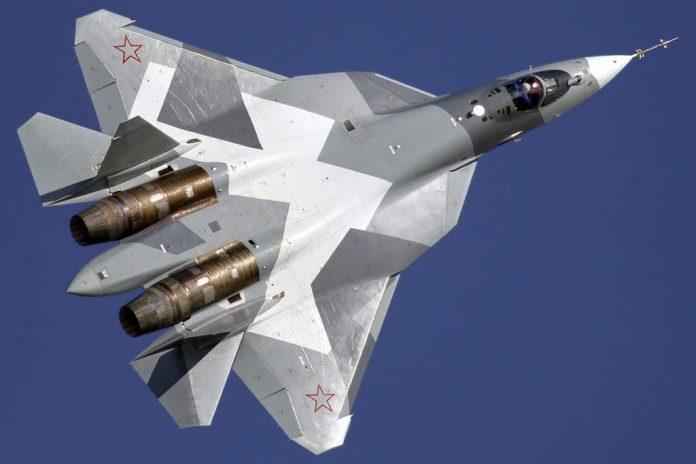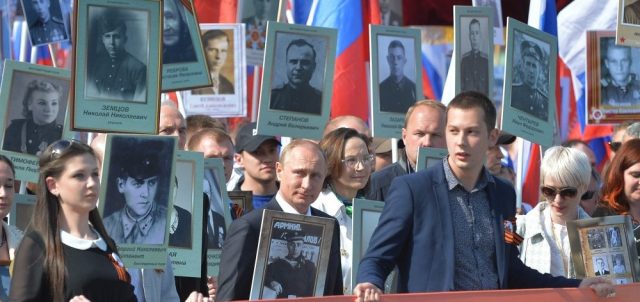
… from TASS, Moscow
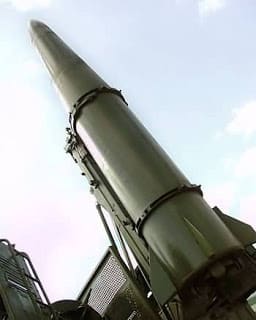
[ Editor’s Note: This very public discussion of Russia’s defense modernization is the wooden stake through NATO’s often told lie about Putin’s plans to rebuild the old Soviet Union by retaking Eastern Europe.
That an American NATO general led the charge on this hoax has stained the US military as two bit liars whenever they feel they might benefit from it, including lying.
When these professional and official lying offices were set up in the Pentagon during the Bush years, that was kind of an “Israeli thing”.
I knew that Pandora’s box was opening. Such Cold War tactics used on enemy opponents, also being used on the US public, would have the military one step away from viewing civilians that disagreed with them as “the enemy” and subject to military action, starting with strikes from the liars’ brigade.
Below you will read that the status of Russia’s equipment was on par with Ukraine’s, which did not perform very well in the recent war. To claim that it was a threat to the West offensively is a bad joke. Russia, like China, had kept investing in their non war economies as being in their best interest, and that is why the Western banksters really considered them a threat.
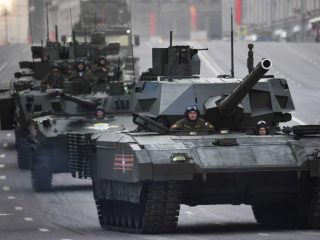
Obama’s Asian Pivot and this stupid Ukraine war now have them pushing for upgrading their militaries — something they would not have done on this scale without our offensive behavior. Again I have to ask, whose interests were our leaders really serving?
Notice the line below where Putin says that Russia will share its modernization program with its Eurasian partners. This is obviously a call to avoid duplication of effort and create economy of scale for all to get the maximum bang for their money, as compared to the F-35 fiasco.
As I have editorialized, we will see an integrated defense for this 2+ billion block of people, all defending along interior lines. And we will see our own Western defense regimes spin that as justification for our funding a new arms race, and not by accident. I see them orchestrating this clearly… Jim W. Dean ]
________________________
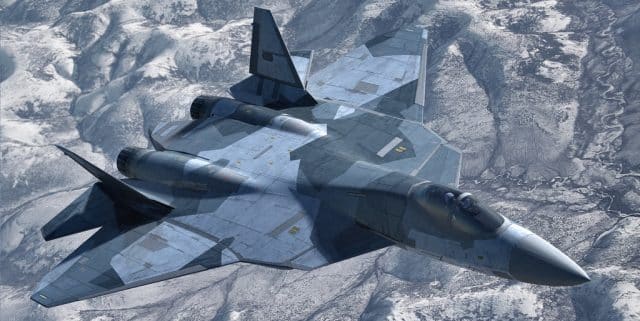
– First published … May 18, 2015 –
Russia needs to upgrade its armed forces not to meddle in geo-political conflicts, but to provide reliable protection for its own security and the security of its allies, polled experts have told TASS after studying the results of a series of meetings President Vladimir Putin as the commander-in-chief held with the military elite and the heads of the defence-industrial complex in the Black Sea resort city of Sochi last week.
Putin has used the format of such conferences for several years in a row. Once a year he brings together senior military and chiefs of the defence industry for joint in-depth analysis of the situation and development prospects in various branches of the defence-industrial complex.
In the course of the latest series of such meetings Putin paid special attention to putting to effective use the 20 trillion rubles ($400 billion) earmarked for rearming the ground, air and naval forces and another 3 trillion ($60 billion) for re-equipping the arms manufacturing industries. Also, he set the task of stepping up the substitution of imported military technologies with products of domestic manufacture.
“The priorities Vladimir Putin has identified are quite logical. Throughout the 1990s the Russian army’s weapons and equipment remained basically unchanged. The hardware’s parameters were falling behind those of the other armies around the world. The quality of armaments and equipment in service was identical to what the Ukrainian army with its low combat readiness is today,” the deputy director of the Institute of Military-Political Studies, Anatoly Khramchikhin, told TASS.
This explains why the Russian army needs wholesale and fundamental upgrade of its hardware.
“In the ground and air forces the share of the newest armaments should exceed 30% by the end of 2015, in the airborne troops, 40%, and in the Navy and air and space defence forces, 50%. By 2020 the share of modern weapons in the Russian armed forces should go up to 70%, and in some arms and services, to 100%. These targets the president has identified are quite achievable, bearing in mind the funds allocated for re-armament,” Khramchikhin said.
“Against the backdrop of anti-Russian sanctions, disrution of military-technological cooperation with Ukraine and the row over France’s failure to deliver the helicopter-carrying amphibious assault ships Mistral on time, if at all, the priority of import substitution is more than obvious. Although in fact Russia does not need the Mistrals very much, as the Navy sees no specific tasks the ships might be charged with,” Khramchikhin believes.
“The issue of import substitution will be addressed in various ways. For instance, gifted young men may be offered employment at arms manufacturing enterprises as an alternative to military service on conscription. Under a presidential decree defence industries will be allowed to hire young men possessing special technical skills and talent, who otherwise would be drafted into the armed forces, to fill vacancies on cutting-edge research and production teams.
Within some Russian army units there have already been created special research groups for particularly gifted young scientists. This is another factor for the armed forces’ upgrade,” Anatoly Khramchikhin said.
The president of the Academy of Geopolitical Problems, Konstantin Sivkov, believes that the production of heavy inter-continental ballistic missiles and the upgrade of the Bulava missile, is a priority for the Russian armed forces.
“Also, the Russian defence industries must step up noticeably the output of smart weapons and to build 3,000-4,000 armored vehicles on the new generation Armata chassis,” Sivkov told TASS.
“In the context of modern hybrid warfare fundamentally new arms and services must be created within the Russian armed forces: for one, an information warfare arm, identical to those already operating against Russia within NATO. As Putin said at the meetings in Sochi, Russia was not threatening any country.
Nor did it have the slightest intention to meddle in geopolitical conflicts. But for protecting its integrity and sovereignty Russia should perfect its military skills and potential,” the chief of the Centre for Military and Political Studies, Aleksey Podberyozkin, told TASS.
“There are serious reasons to believe that the state defence contract program extending till 2020 will be implemented successfully. But far more attention should be paid to research and development. The Soviet Union’s bank of ideas and promising technologies in aircraft-building and air and space defence has been exhausted 80%.
Time is ripe to give thought to creating advanced military technologies capable of outperforming the best foreign counterparts. In the military industry it is not enough to just keep abreast of world standards. For that breakthroughs in the fundamental science are to be achieved first,” Podberyozkin said.

Jim W. Dean was an active editor on VT from 2010-2022. He was involved in operations, development, and writing, plus an active schedule of TV and radio interviews.
ATTENTION READERS
We See The World From All Sides and Want YOU To Be Fully InformedIn fact, intentional disinformation is a disgraceful scourge in media today. So to assuage any possible errant incorrect information posted herein, we strongly encourage you to seek corroboration from other non-VT sources before forming an educated opinion.
About VT - Policies & Disclosures - Comment Policy

